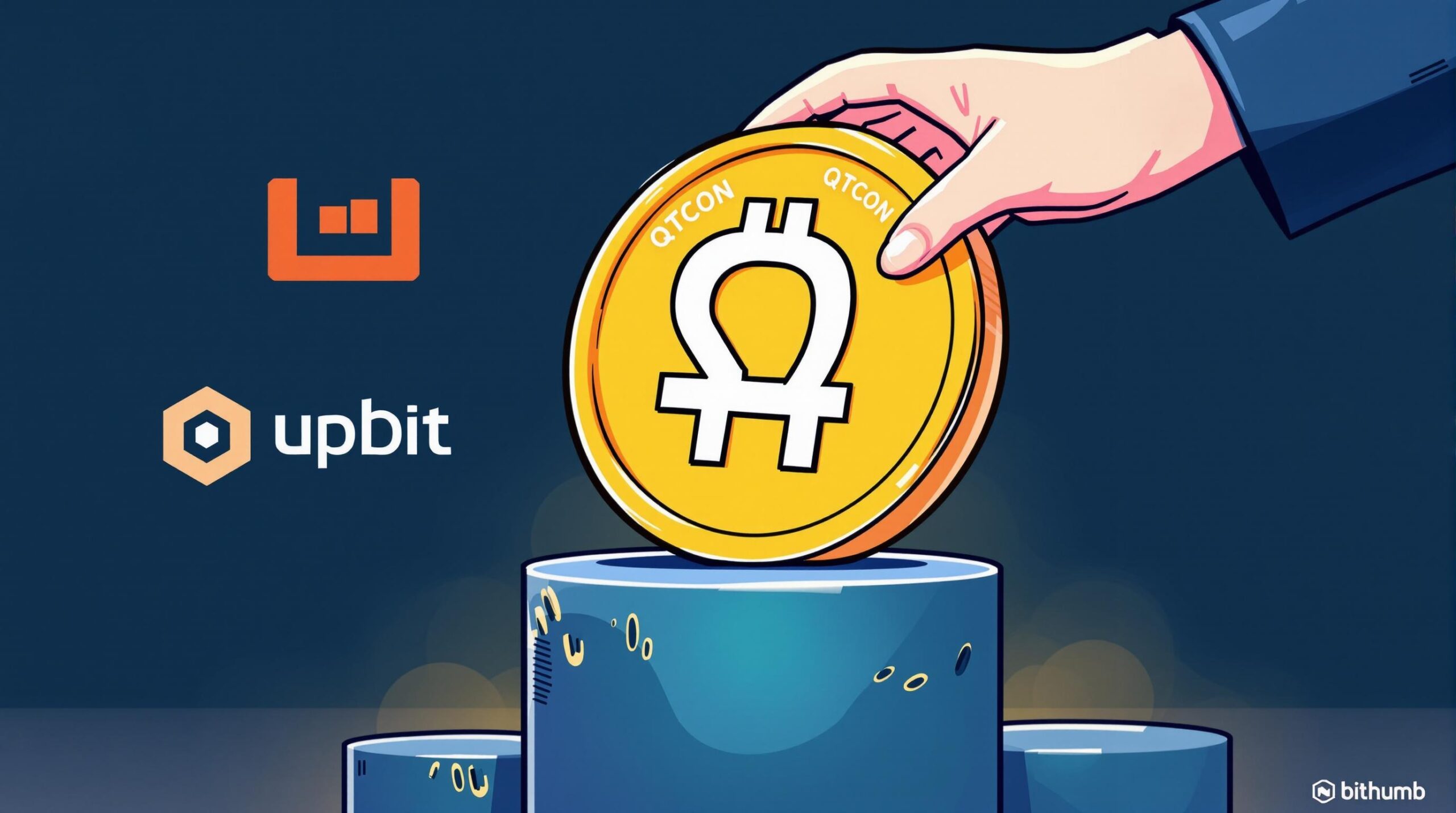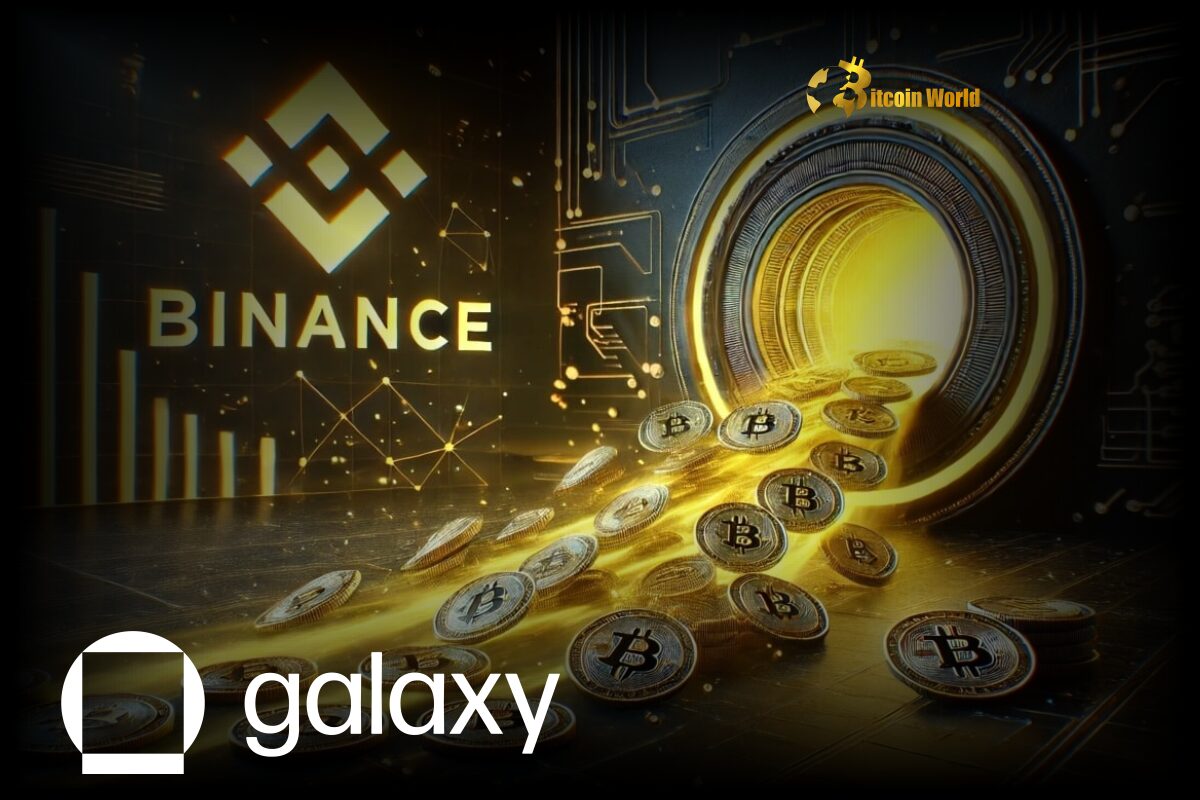BitcoinWorld

Urgent Warning: Quiztok Delisting Looms on Upbit and Bithumb
In the fast-paced world of cryptocurrency, news travels quickly, and sometimes, it brings significant changes for investors. A recent announcement has sent ripples through the South Korean crypto community: the impending Quiztok delisting. Major exchanges Upbit and Bithumb have declared their decision to cease support for the Quiztok (QTCON) token. This move, scheduled for August 25th at 06:00 UTC, raises important questions for current holders and the broader market.
What Does the Quiztok Delisting Mean for Investors?
The news of the Quiztok delisting from two of South Korea’s largest crypto exchanges, Upbit and Bithumb, is a critical development for anyone holding QTCON tokens. For investors, a delisting typically means a significant reduction in liquidity and accessibility for the affected asset. When a token is delisted from major platforms, it becomes much harder to buy, sell, or trade it, often leading to a sharp decline in its market value.
Here’s what this development fundamentally implies:
- Reduced Liquidity: With QTCON no longer trading on Upbit and Bithumb, the primary avenues for converting QTCON into other cryptocurrencies or fiat currency will be severely limited. This can make it difficult to exit positions without significant price slippage.
- Price Impact: Delistings often trigger panic selling, as investors rush to offload their holdings before the trading pairs are removed. This increased supply with dwindling demand can cause a dramatic drop in the token’s price.
- Accessibility Issues: Holders will need to find alternative platforms that still support QTCON, or transfer their tokens to a personal wallet if they wish to retain them outside of the exchanges.
- Uncertain Future: A delisting from prominent exchanges can signal underlying issues with the project itself, raising concerns about its long-term viability and development.
Understanding these implications is the first step in formulating a strategy. Investors need to act promptly to mitigate potential losses or explore their remaining options.
Why Are Exchanges Announcing the Quiztok Delisting? Understanding the Reasons Behind Delistings
While the specific reasons for the Quiztok delisting by Upbit and Bithumb were not explicitly detailed in the initial announcements beyond the cessation of support, delistings by major exchanges are rarely arbitrary. They are typically the result of a thorough review process, driven by various factors aimed at protecting users and maintaining market integrity. Common reasons for a cryptocurrency delisting include:
- Low Trading Volume and Liquidity: If a token consistently has low trading activity, it may not be profitable for an exchange to maintain its trading pairs, and it can also lead to poor user experience due to wide bid-ask spreads.
- Project Viability and Development Concerns: Exchanges evaluate the ongoing development of a project. If a project fails to meet its roadmap, shows a lack of progress, or its team becomes unresponsive, it might be flagged for delisting.
- Regulatory and Compliance Issues: The regulatory landscape for cryptocurrencies is constantly evolving. If a token or its underlying project falls out of compliance with new or existing regulations in the jurisdiction where the exchange operates, delisting becomes a necessity. This is particularly relevant in South Korea, which has stringent crypto regulations.
- Security Vulnerabilities: Smart contract exploits, significant hacks, or other security flaws in a project can lead exchanges to delist a token to protect their users’ assets.
- Market Manipulation Concerns: If there’s evidence of wash trading, pump-and-dump schemes, or other forms of market manipulation associated with a token, exchanges may delist it to maintain a fair trading environment.
- Failure to Meet Listing Standards: Exchanges often have ongoing listing requirements related to technology, community engagement, and market capitalization. If a project no longer meets these standards, it may face delisting.
Given the regulatory environment in South Korea, it’s plausible that compliance issues or a reassessment of the project’s long-term viability played a role in the decision for the Quiztok delisting. Exchanges prioritize user safety and the integrity of their platforms, making such decisions after careful consideration.
Navigating the Aftermath: Your Options After a QTCON Delisting
For individuals holding QTCON on Upbit or Bithumb, immediate action is crucial following the Quiztok delisting announcement. While trading will cease, exchanges typically provide a window for users to withdraw their tokens to an external wallet or another exchange that still supports QTCON. It’s imperative to understand your options and act before the withdrawal deadline.
Here are the key steps and considerations for QTCON holders:
- Withdraw Your Tokens: The most important step is to withdraw your QTCON from Upbit and Bithumb to a private, secure wallet (like a hardware wallet or a reputable software wallet) or to another exchange that continues to list QTCON. Ensure you complete this process well before the announced withdrawal deadline to avoid losing access to your funds.
- Identify Alternative Exchanges: Research if QTCON is listed on other reputable exchanges. If so, you might be able to transfer your tokens there to maintain some trading flexibility. Be aware that liquidity on smaller exchanges might be significantly lower.
- Consider Selling: If you wish to divest your QTCON holdings, the period leading up to the delisting offers a final opportunity to sell your tokens on the affected exchanges. However, be prepared for potential price volatility and slippage as others also attempt to sell.
- Hold for Future Potential (High Risk): You might choose to hold your QTCON in a private wallet, hoping for a future relisting on other platforms or a resurgence of the project. This is a high-risk strategy, as delisted tokens often struggle to regain relevance or value.
- Stay Informed: Keep a close eye on official announcements from Quiztok’s project team and other crypto news outlets. The project might announce new exchange listings or development updates that could impact the token’s future.
It’s crucial to verify all information from official sources and to be wary of scams that often emerge around delisting events, promising unrealistic recovery solutions.
Beyond Quiztok: Lessons Learned from Crypto Delistings
The Quiztok delisting serves as a potent reminder of the inherent risks and dynamic nature of the cryptocurrency market. While delistings can be distressing for affected investors, they also offer valuable lessons for everyone involved in the crypto space. These events underscore the importance of robust due diligence and risk management strategies.
Key takeaways for investors include:
- Diversification is Key: Never put all your eggs in one basket. Diversifying your crypto portfolio across different assets, sectors, and even blockchains can help mitigate the impact of adverse events like a single asset’s delisting.
- Research, Research, Research: Before investing in any token, conduct thorough research into the project’s fundamentals, team, technology, use case, community, and tokenomics. Understand its long-term viability and the potential risks.
- Monitor Project Developments: Stay updated on the projects you invest in. Follow their official channels, read their updates, and observe their progress against their roadmap. A lack of communication or progress can be a red flag.
- Understand Exchange Policies: Familiarize yourself with the listing and delisting policies of the exchanges you use. Different exchanges have different standards and review processes.
- Be Aware of Regulatory Changes: The regulatory environment for crypto is constantly evolving. Stay informed about potential policy shifts in major jurisdictions, as these can directly impact projects and exchanges.
- Don’t Chase Hype: Avoid making investment decisions based solely on social media hype or ‘get rich quick’ promises. Focus on projects with real utility and sustainable growth potential.
By internalizing these lessons, investors can build more resilient portfolios and navigate the volatile crypto landscape with greater confidence, even in the face of unexpected events like the Quiztok delisting.
The Role of Exchanges: Upholding Market Integrity Amidst Delistings
Cryptocurrency exchanges like Upbit and Bithumb play a pivotal role in the digital asset ecosystem. Beyond simply facilitating trades, they are increasingly seen as gatekeepers, responsible for maintaining a healthy and secure trading environment for their users. The decision for a Quiztok delisting, or any delisting, is not taken lightly and reflects their commitment to these responsibilities.
Exchanges operate under several key imperatives:
- User Protection: Their primary duty is to protect their users from fraudulent projects, illiquid assets, and market manipulation. Delisting a token that no longer meets their standards or poses risks is a way to uphold this commitment.
- Regulatory Compliance: Especially in highly regulated markets like South Korea, exchanges must adhere to strict ‘know your customer’ (KYC) and anti-money laundering (AML) laws, as well as broader financial regulations. Projects that fall short of these compliance standards can jeopardize the exchange’s operational license.
- Market Quality: By removing underperforming or problematic assets, exchanges aim to improve the overall quality of their listed offerings. This ensures that their platform remains attractive and trustworthy for serious traders and investors.
- Reputation Management: An exchange’s reputation is built on trust and reliability. Facilitating trading of questionable assets can damage this reputation, leading to a loss of users and market share.
While delistings can be painful for affected investors, they are an essential part of the market’s self-correction mechanism. They signal that exchanges are actively monitoring listed assets and are willing to take decisive action when necessary, contributing to the long-term health and credibility of the crypto industry.
Conclusion: Staying Informed in a Dynamic Crypto Landscape After the Quiztok Delisting
The announcement of the Quiztok delisting by Upbit and Bithumb is a stark reminder of the ever-evolving and sometimes unpredictable nature of the cryptocurrency market. For QTCON holders, it necessitates swift and informed action to protect their assets. For the broader crypto community, it serves as a valuable case study on the importance of due diligence, risk management, and staying abreast of market developments.
While delistings can cause short-term distress, they are often a sign of a maturing market where exchanges are striving to uphold higher standards of quality, security, and regulatory compliance. As the crypto space continues to grow and integrate with traditional finance, such decisions will become more common, emphasizing the need for investors to be proactive, adaptable, and well-informed. The key to navigating this dynamic landscape successfully lies in continuous learning and strategic decision-making.
Frequently Asked Questions (FAQs)
Q1: What exactly is the Quiztok delisting?
A1: The Quiztok delisting refers to the decision by major South Korean cryptocurrency exchanges, Upbit and Bithumb, to remove the QTCON token from their trading platforms, meaning users will no longer be able to buy, sell, or trade it after a specified date.
Q2: When will QTCON be delisted from Upbit and Bithumb?
A2: Quiztok (QTCON) will be delisted at 06:00 UTC on August 25th from both Upbit and Bithumb. It is crucial for holders to complete any necessary actions before this time.
Q3: What should I do if I hold QTCON on Upbit or Bithumb?
A3: You should immediately withdraw your QTCON tokens to a private cryptocurrency wallet or to another exchange that still supports QTCON. Be sure to do this before the withdrawal deadline set by the exchanges.
Q4: Why do crypto exchanges delist tokens like QTCON?
A4: Exchanges delist tokens for various reasons, including low trading volume, concerns about the project’s development or viability, failure to meet regulatory compliance standards, security vulnerabilities, or issues related to market manipulation.
Q5: Will QTCON be worthless after the delisting?
A5: While a delisting from major exchanges significantly impacts a token’s liquidity and value, it doesn’t necessarily make it worthless. However, its accessibility will be severely limited, and its price is likely to drop significantly. Its future value will depend on its listing on other platforms or the project’s independent developments.
Q6: How can I protect myself from future delistings?
A6: To mitigate risks, diversify your portfolio, conduct thorough research on projects, stay updated on their development, understand exchange policies, and be aware of regulatory changes in the crypto space. Always prioritize projects with strong fundamentals and clear utility.
If you found this article helpful, please consider sharing it with your network! Your support helps us provide timely and essential insights into the ever-evolving world of cryptocurrency.
To learn more about the latest crypto market trends, explore our article on key developments shaping the digital asset space and future price action.
This post Urgent Warning: Quiztok Delisting Looms on Upbit and Bithumb first appeared on BitcoinWorld and is written by Editorial Team





